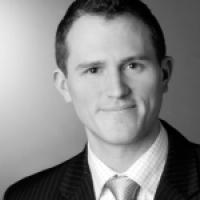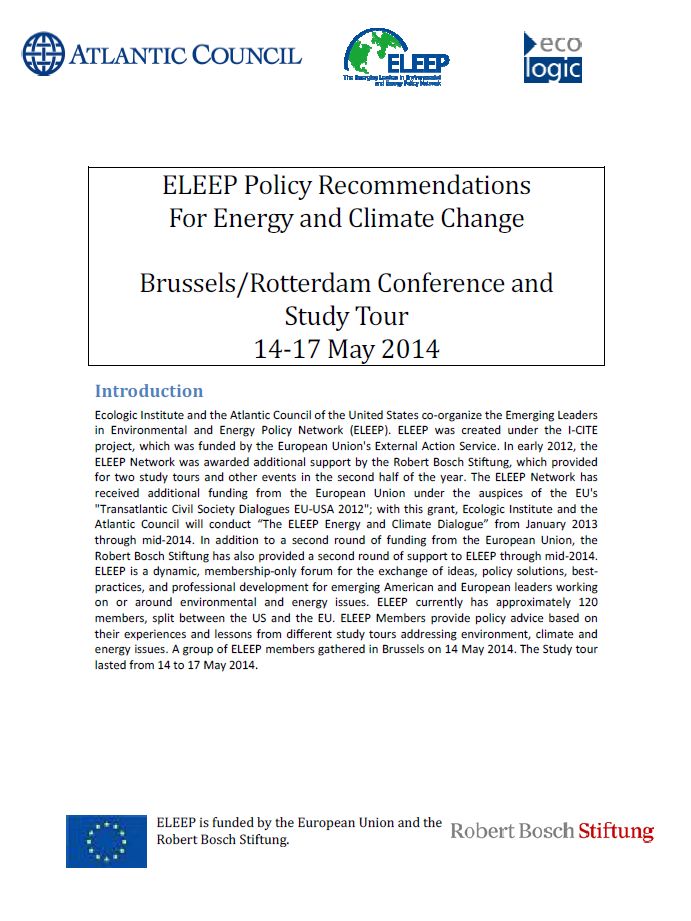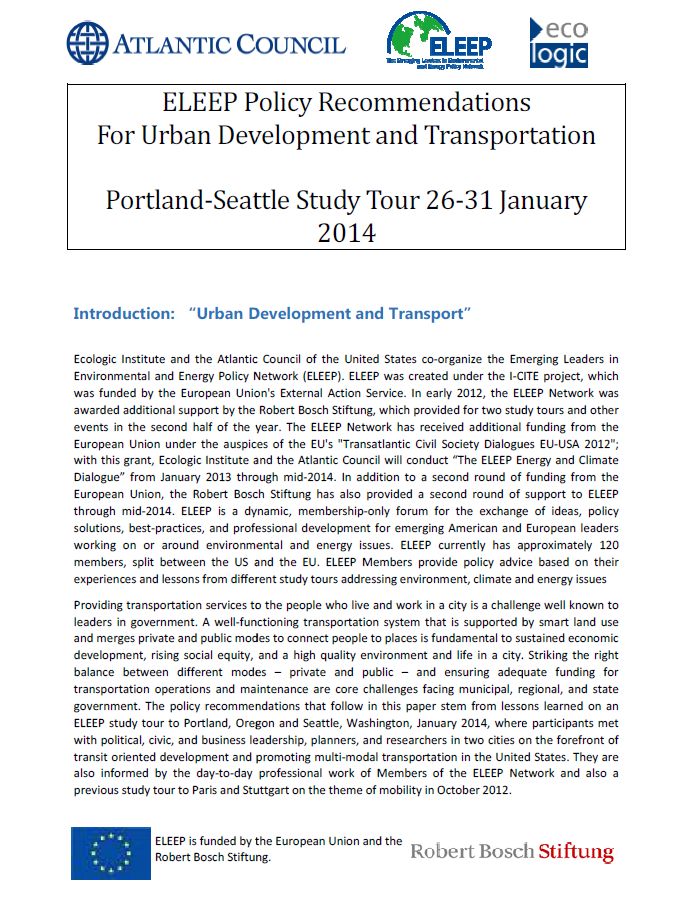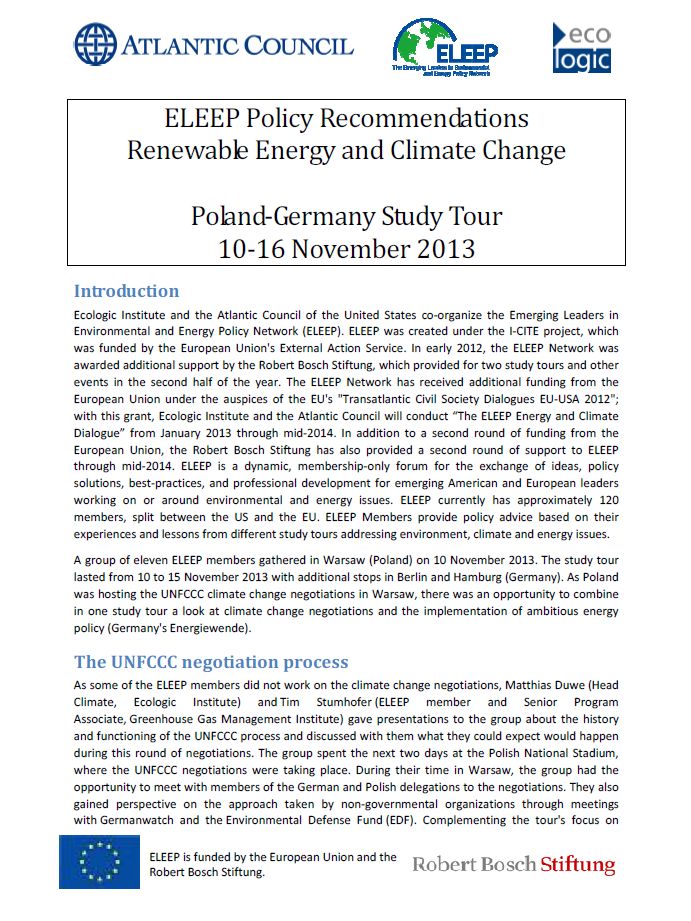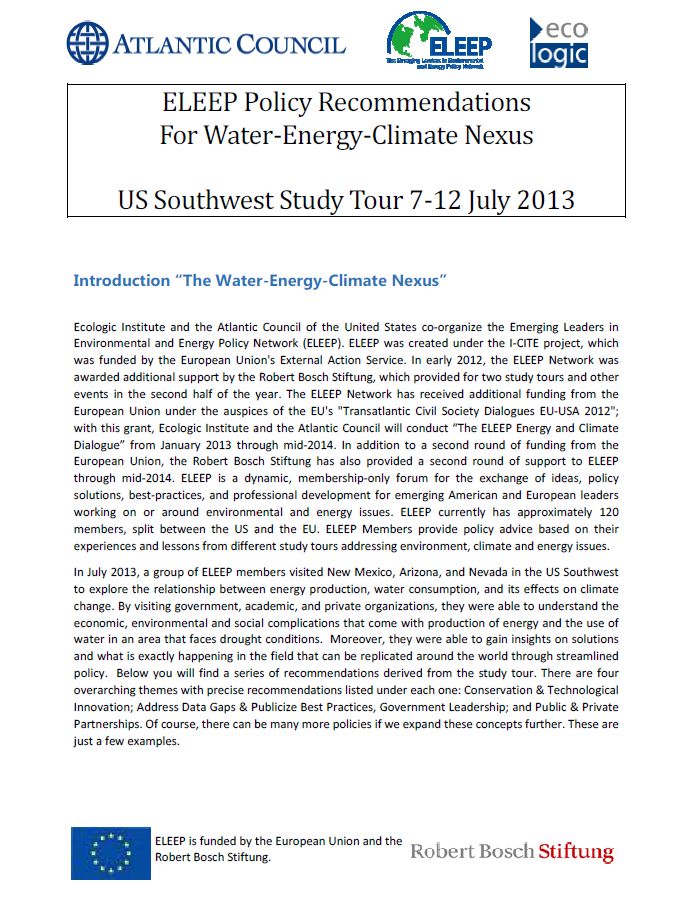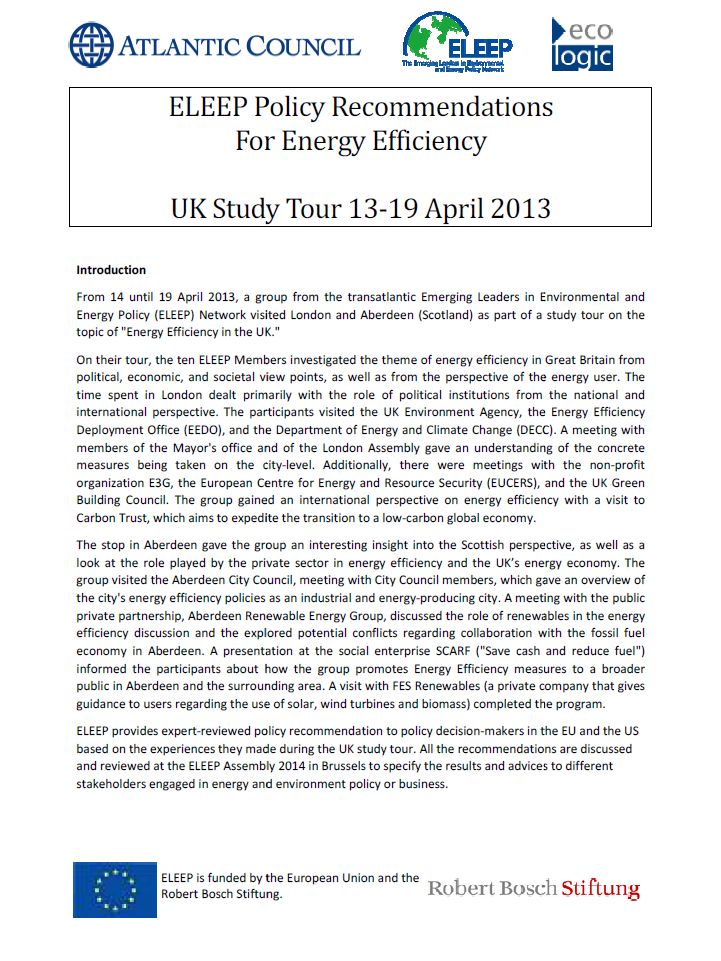ELEEP Study Tour: American Perspectives On Natural Gas and Renewable Energy Policy
- Event
- Date
-
-
- Location
- Denver and San Francisco, United States
As part of the ELEEP Network’s ongoing investigation of the changing energy landscape in Europe and the United States, ten ELEEP members participated in a study tour to Denver, Colorado and San Francisco, California from 19 to 24 August 2012. This trip served as a counterpoint to earlier trips to Germany/Austria in August 2011 and Germany/Denmark in March 2012, augmenting the European perspective with current information from the United States.
While the European trips paid significant attention to the rapid installation of renewable energy technologies as well as the role of conventionally developed natural gas (for example, through a visit to the North Stream pipeline’s facility in Greifswald, Germany), much of the discussion of this US tour explored the advantages and challenges of exploiting natural gas resources through the use of hydraulic fracturing (so-called “fracking”) and horizontal drilling technologies. Echoing choices in Europe, American states have chosen different paths when it comes to fracking. Some states (Colorado, Texas, and Pennsylvania) have allowed landowners and drilling companies to explore and exploit available shale gas and other similar resources; other states have allowed only limited exploration (California), or have banned (Vermont) or withheld drilling permits until comprehensive environmental impact assessments are completed (New York).
The rapidly expanding production of natural gas in the United States as a result of fracking has had ripple effects for the natural gas industry in North America, but also affects gas markets in Europe and around the world, as the US no longer appears to need natural gas imports (save those from Canada and Mexico). The effects of fracking are also affecting the expansion of renewable energy technologies and the policies US states have adopted to support them. Colorado and California were chosen for the trip, as they both produce natural gas and support the use of renewable energy technologies through policy. Although California is moving ahead with ambitious climate and renewable energy goals – at least from the US perspective – Colorado’s policymakers are reconsidering prior commitments to renewable energy in light of increased natural gas and oil production. ELEEP members were able to investigate these developments throughout the study tour.
Over the course of the week, the ELEEP members had the opportunity to investigate these issues by meeting with a variety of practitioners, activists, researchers, and policy makers. During the week, members were joined by Bill Midcap (Director of Renewable Energy for the Rocky Mountain Farmers Union) and Michael Whiting (County Commissioner, Archuleta County, Colorado), who provided in-depth insight into issues facing communities, landowners, and politicians in Colorado. The group’s meetings with the Colorado Oil and Gas Association and the Renewable and Sustainable Energy Institute were balanced with a tour and presentation at the National Renewable Energy Laboratory in Golden, Colorado and the Alliance Center in Denver, Colorado.
In California, the group met with Jeffrey Ball and colleagues of the Steyer-Taylor Center at Stanford University to discuss how to promote renewable energy without subsidies. The group travelled to Sacramento for a day to meet with a variety of actors in the promotion and implementation of renewable energy and climate policy in California, including staffers from the California State Senate as well as the California Air Resources Board. Supplementing the policy-heavy focus of the tour were meetings with Opower – to discuss the company’s innovating approach for reducing energy usage in the US – and with Julio Friedman, Chief Energy Technologist of the Lawrence Livermore National Laboratory, to explore innovation and emerging energy technologies. The trip concluded with a visit to San Mateo to discuss what the county leadership and partners are doing to encourage sustainable urban development and renewable energy use in San Mateo County just south of San Francisco.



